The Role of Probiotics in Everyday Health
In today's fast-paced world, maintaining optimal health can feel like a daunting task. However, one often overlooked hero in the quest for wellness is probiotics. These tiny, live microorganisms are more than just a trendy health buzzword; they play a crucial role in our everyday health. Imagine your gut as a bustling city where good bacteria act as loyal citizens, fighting off the bad guys and keeping the peace. That's precisely what probiotics do—they help maintain a balanced gut flora, which is essential for our overall well-being.
But what exactly are probiotics? In simple terms, they are beneficial bacteria that, when consumed in adequate amounts, provide health benefits. They come in various forms and strains, each with its unique properties and benefits. Think of them as the friendly neighborhood superheroes for your digestive system. They support digestion, enhance immune function, and may even improve mental health. In this article, we will explore the significance of probiotics, their health benefits, sources, and practical ways to incorporate them into your daily routine.
Probiotics are live microorganisms that, when ingested, can confer health benefits. They primarily belong to two groups: Lactobacillus and Bifidobacterium. Lactobacillus is commonly found in yogurt and other fermented foods, while Bifidobacterium resides in the intestines. The science behind probiotics is fascinating; they work by restoring the natural balance of gut bacteria, which can be disrupted by factors such as poor diet, stress, and antibiotics. By reintroducing these beneficial bacteria, probiotics can help promote a healthy digestive system and improve overall health.
The benefits of probiotics are numerous and varied, making them a valuable addition to any diet. From improved digestion to enhanced immune function, probiotics offer a range of health advantages. Here are some key benefits:
- Digestive Health: Probiotics help alleviate common digestive issues such as bloating, diarrhea, and constipation.
- Immune System Support: A healthy gut flora is linked to a more robust immune response, reducing the risk of infections.
- Potential Mental Health Benefits: Emerging research suggests a connection between gut health and mental well-being.
When it comes to gut health, probiotics are like the friendly traffic cops directing the flow of beneficial bacteria. They play a crucial role in maintaining a healthy digestive system by balancing gut flora. An imbalance can lead to various digestive issues, and that's where probiotics come in. For instance, they can alleviate symptoms of bloating and discomfort, making your digestive journey much smoother.
Irritable Bowel Syndrome (IBS) can be a challenging condition for many individuals. Probiotics have shown promise in managing its symptoms, providing relief to those who suffer from this condition. Certain strains, such as Lactobacillus plantarum and Bifidobacterium infantis, have been specifically noted for their effectiveness in reducing IBS symptoms. By incorporating these strains into your diet, you may find a significant improvement in your gut health.
Maintaining a healthy gut flora is essential for digestion. Probiotics contribute to this balance by outcompeting harmful bacteria and producing substances that inhibit their growth. This symbiotic relationship between probiotics and gut bacteria is vital for digestion and overall health. It's like having an army of good bacteria protecting your gut from the bad guys!
A strong immune system is your body's first line of defense against infections and illnesses. Probiotics play a significant role in enhancing immune responses by promoting the production of antibodies and activating immune cells. By supporting gut health, probiotics indirectly bolster your immune system, making it easier for your body to fend off sickness.
Now that we understand the importance of probiotics, let's explore where we can find them. Probiotics can be found in various foods and supplements. Here are some natural sources:
- Yogurt: A popular source of probiotics, especially when labeled as containing live cultures.
- Kefir: A fermented dairy product rich in probiotics.
- Fermented Vegetables: Foods like sauerkraut and kimchi are packed with beneficial bacteria.
Fermented foods are not only delicious but also rich in probiotics. Foods like kimchi, sauerkraut, and kombucha are excellent choices for incorporating probiotics into your diet. These foods undergo a fermentation process that enhances their nutritional profile while introducing beneficial bacteria. Plus, they add a unique flavor to your meals!
For those who prefer a more concentrated source of probiotics, supplements are widely available. They come in various forms, including capsules, powders, and gummies. When choosing a probiotic supplement, consider the specific strains and their dosages. It's essential to select a product that aligns with your health goals. Consulting with a healthcare provider can also help you find the right supplement for your needs.
Incorporating probiotics into your daily routine can be both easy and enjoyable. Here are some practical tips for making probiotics a regular part of your diet:
- Add yogurt or kefir to your breakfast smoothies.
- Snack on fermented vegetables or pickles for a probiotic boost.
- Experiment with recipes that include probiotic-rich ingredients.
Cooking with probiotics can enhance your meals and provide health benefits. For instance, you can create a delicious smoothie by blending yogurt, fruits, and a handful of spinach. This not only tastes great but also packs a probiotic punch!
Establishing daily habits can ensure consistent probiotic intake. Consider starting your day with a probiotic-rich breakfast, snacking on fermented foods throughout the day, and incorporating probiotics into your dinner recipes. With a little creativity, you can easily make probiotics a staple in your diet.
While probiotics are generally safe, there are potential risks and considerations to be aware of. Certain individuals, such as those with compromised immune systems, may need to consult a healthcare provider before starting probiotics. It's essential to ensure that probiotics are suitable for your health condition.
Individuals with specific health conditions, such as severe pancreatitis or those undergoing immunosuppressive therapy, should avoid probiotics unless advised by a healthcare professional. Always consult your doctor if you're unsure.
While rare, some people may experience side effects from probiotics, such as gas or bloating. If you encounter these issues, consider adjusting the dosage or trying a different strain. Most side effects are mild and temporary, but it's essential to listen to your body.
In conclusion, probiotics play a vital role in maintaining health and well-being. From supporting digestion to enhancing immune function, these beneficial microorganisms offer a plethora of health advantages. By incorporating probiotics into your daily routine through food or supplements, you can take a proactive step toward better health. So why not start today? Your gut will thank you!
1. What are probiotics?
Probiotics are live microorganisms that provide health benefits when consumed in adequate amounts, primarily by promoting a healthy gut flora.
2. How can I incorporate probiotics into my diet?
You can include probiotics by consuming yogurt, kefir, fermented vegetables, or probiotic supplements.
3. Are there any side effects of taking probiotics?
While rare, some individuals may experience mild side effects such as gas or bloating. It's advisable to start with a lower dose and increase gradually.
4. Who should avoid probiotics?
Individuals with compromised immune systems or certain health conditions should consult a healthcare provider before starting probiotics.

Understanding Probiotics
Probiotics are often hailed as the unsung heroes of our digestive health, but what exactly are they? In simple terms, probiotics are live microorganisms, primarily bacteria and yeasts, that provide health benefits when consumed in adequate amounts. These tiny warriors play a crucial role in maintaining a balanced gut environment, which is essential for not just digestion, but overall wellness.
To get a bit more technical, probiotics are classified into different types, mainly based on their species and strains. Some of the most common types include:
- Lactobacillus: Found in yogurt and fermented foods, this strain is known for its ability to help digest lactose and combat diarrhea.
- Bifidobacterium: This strain is often found in dairy products and is beneficial for gut health and immune function.
- Saccharomyces boulardii: A yeast-based probiotic that can help with digestive disorders.
But how do these little microorganisms work their magic? The science behind probiotics is quite fascinating. When consumed, they travel through the digestive tract and settle in the gut, where they help to maintain a healthy balance of gut flora. This balance is vital because our gut is home to trillions of bacteria, both good and bad. The good bacteria, which probiotics help to promote, can crowd out the bad bacteria, leading to a healthier digestive system.
Moreover, probiotics can produce substances like short-chain fatty acids and vitamins that contribute to gut health. They also play a role in enhancing the gut barrier function, which helps prevent harmful pathogens from entering the bloodstream. This is particularly important because a compromised gut barrier can lead to a range of health issues, including inflammation and autoimmune conditions.
As we delve deeper into the world of probiotics, it’s essential to understand that not all probiotics are created equal. Different strains have different effects on health, and the benefits you might experience can vary based on the specific strains you consume. Therefore, it's crucial to choose the right types of probiotics for your individual health needs.
In summary, understanding probiotics is the first step toward harnessing their potential benefits. By incorporating the right strains into your diet, you can pave the way for improved digestion, enhanced immune function, and overall better health.
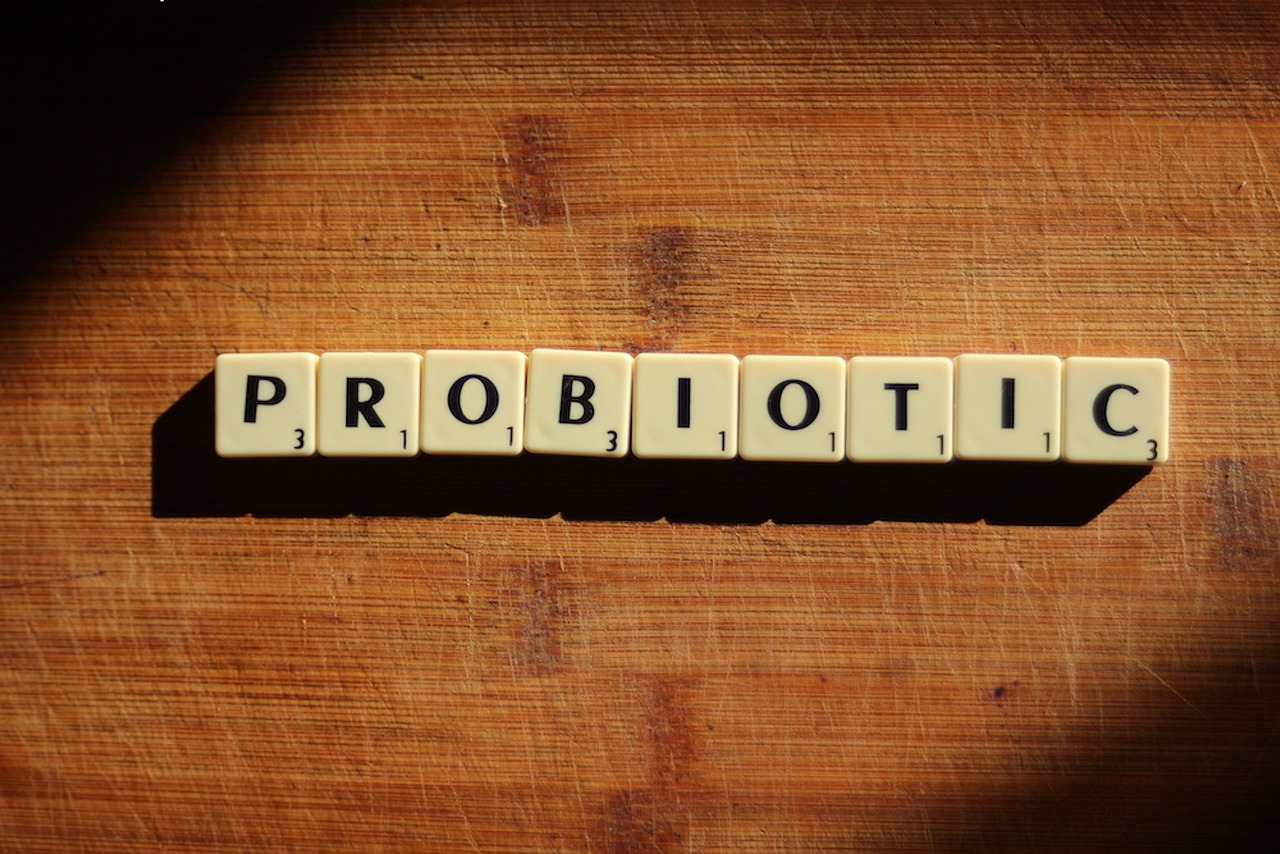
Health Benefits of Probiotics
Probiotics are more than just a health trend; they are a gateway to better well-being. These tiny, live microorganisms can have a **profound impact** on our health, particularly when it comes to our digestive system and immune function. Imagine your gut as a bustling city, where probiotics serve as the friendly citizens ensuring everything runs smoothly. They help keep the balance of bacteria in your gut, which is crucial for overall health. But what exactly are the benefits of incorporating probiotics into your daily routine?
One of the most celebrated benefits of probiotics is their ability to **enhance digestion**. If you've ever felt bloated or uncomfortable after a meal, probiotics could be your best friend. They help break down food, making it easier for your body to absorb nutrients. Moreover, they can alleviate common digestive issues such as diarrhea and constipation. In fact, a study found that individuals who consumed probiotics experienced a significant reduction in bloating and abdominal discomfort.
But that's not all! Probiotics also play a vital role in supporting the **immune system**. Think of them as your body’s natural defense team, ready to tackle any invaders. Research suggests that probiotics can enhance immune responses, which may help reduce the risk of infections. They do this by promoting the production of antibodies and stimulating the activity of immune cells. So, when you incorporate probiotics into your diet, you're not just improving your gut health; you're also fortifying your body's defenses.
To make it clearer, here’s a quick overview of the key health benefits of probiotics:
| Benefit | Details |
|---|---|
| Improved Digestion | Helps alleviate bloating, diarrhea, and constipation. |
| Enhanced Immune Function | Boosts immune responses and reduces infection risk. |
| Gut Flora Balance | Maintains a healthy balance of gut bacteria. |
Additionally, probiotics can be particularly beneficial for individuals suffering from **Irritable Bowel Syndrome (IBS)**. Certain strains of probiotics, like Lactobacillus plantarum and Bifidobacterium infantis, have shown promise in managing IBS symptoms. They may help reduce bloating and improve bowel regularity, allowing individuals to enjoy life without the constant worry of digestive discomfort.
Moreover, maintaining a healthy gut flora is essential not just for digestion but for overall health. Probiotics contribute significantly to this balance, ensuring that beneficial bacteria outnumber harmful ones. In a world filled with processed foods and stress, incorporating probiotics into your diet can serve as a natural way to restore that balance.
In summary, the health benefits of probiotics are vast and varied. From improving digestion to supporting your immune system, these microorganisms are a powerhouse for your health. So, why not consider adding them to your daily routine? Your gut—and your body—will thank you!
1. What are probiotics?
Probiotics are live microorganisms that provide health benefits, particularly for your digestive system, when consumed in adequate amounts.
2. How can I incorporate probiotics into my diet?
You can include probiotics by consuming fermented foods like yogurt, kefir, sauerkraut, and kimchi, or by taking probiotic supplements.
3. Are there any side effects of taking probiotics?
While probiotics are generally safe, some individuals may experience mild digestive upset. It's always best to consult with a healthcare provider if you have concerns.
4. Who should avoid probiotics?
Individuals with compromised immune systems or underlying health conditions should consult a healthcare professional before starting probiotics.

Digestive Health
When it comes to , probiotics are like the friendly neighborhood superheroes of your gut. They swoop in to save the day by balancing the gut flora, which is essential for good digestion. Imagine your gut as a bustling city; it needs the right balance of residents to keep everything running smoothly. Probiotics help maintain that balance by introducing beneficial bacteria, which can be particularly helpful in alleviating common digestive issues.
Many people experience digestive discomfort at some point in their lives, whether it's bloating, diarrhea, or constipation. These conditions can often feel like an unwelcome guest that overstays its welcome. Fortunately, probiotics can help kick those guests out by:
- Reducing bloating and gas
- Shortening the duration of diarrhea
- Improving stool consistency and frequency
Research has shown that certain strains of probiotics can be particularly effective in managing these symptoms. For instance, Lactobacillus rhamnosus and Bifidobacterium lactis have been noted for their ability to reduce the severity and frequency of diarrhea, especially in children. It's like having a trusty sidekick that helps you fight off the villains of digestive distress!
Moreover, probiotics also play a crucial role in maintaining gut flora, the diverse community of microorganisms living in your intestines. A healthy gut flora is vital not just for digestion, but for overall health. When the balance of gut bacteria is disrupted, it can lead to a condition known as dysbiosis, which is linked to various health issues, including obesity and autoimmune diseases. By incorporating probiotics into your diet, you're essentially nurturing a thriving ecosystem in your gut.
To put it simply, think of probiotics as the gardeners of your gut. They help cultivate a rich environment where good bacteria can flourish, leading to improved digestion and enhanced nutrient absorption. So, whether you're enjoying a bowl of yogurt or sipping on a kombucha, you're not just treating your taste buds; you're also doing wonders for your digestive health!
Here are some common questions people have about probiotics and digestive health:
- How long does it take for probiotics to improve digestive health? While some people may notice changes within a few days, it can take weeks for probiotics to establish themselves and show significant benefits.
- Can I get enough probiotics from food alone? Yes, many fermented foods are rich in probiotics. However, some individuals may benefit from supplements, especially if they have specific health concerns.
- Are there any side effects of taking probiotics? While probiotics are generally safe, some people may experience mild digestive discomfort initially. It's always best to consult with a healthcare provider if you have concerns.
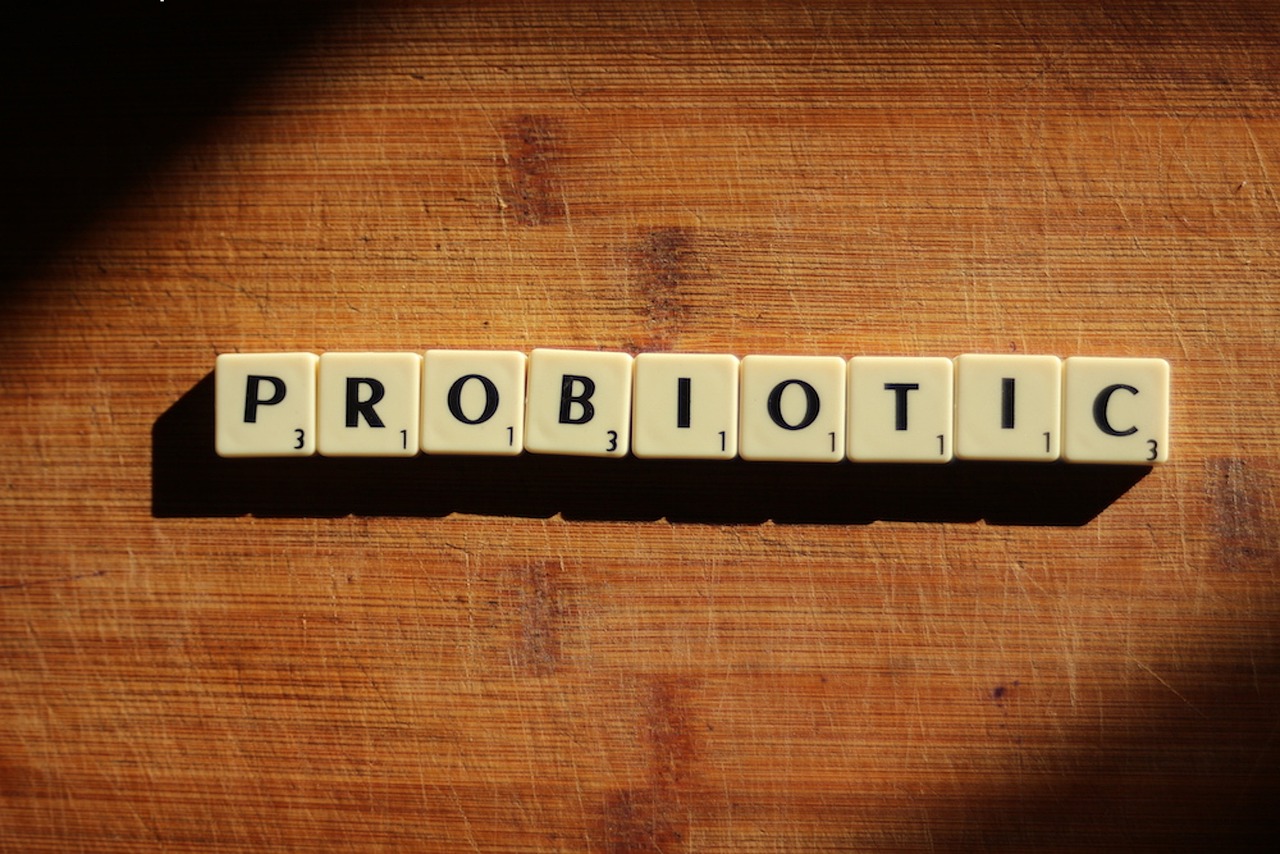
Probiotics and IBS
Living with Irritable Bowel Syndrome (IBS) can feel like navigating a minefield. One moment, you’re feeling fine, and the next, you’re dealing with cramps, bloating, or an urgent need to find a restroom. It’s no wonder that many people are on the lookout for effective ways to manage their symptoms. Enter probiotics — those tiny, beneficial bacteria that promise to bring balance back to your gut. But how exactly do they help with IBS?
Research suggests that certain strains of probiotics can be particularly effective in alleviating IBS symptoms. For instance, lactobacillus plantarum and bifidobacterium infantis have shown promise in clinical studies. These strains can help restore the balance of gut flora, which is often disrupted in individuals with IBS. When the gut microbiome is in harmony, it can significantly reduce symptoms like bloating, gas, and irregular bowel movements.
Moreover, probiotics work by enhancing the gut's barrier function and modulating the immune response. This means they not only help in digestion but also play a role in reducing inflammation within the gut. Think of probiotics as the friendly neighborhood superheroes of your digestive system, swooping in to save the day when things go awry.
However, it's essential to understand that not all probiotics are created equal. The effectiveness of probiotics can vary widely depending on the strain and the individual. Therefore, if you're considering probiotics as a solution for IBS, it's crucial to consult with a healthcare provider. They can help you identify the right strains and dosages tailored to your specific needs.
To give you a clearer picture, here’s a table summarizing some of the most researched probiotic strains for IBS:
| Probiotic Strain | Benefits for IBS |
|---|---|
| Lactobacillus plantarum | Reduces bloating and abdominal pain |
| Bifidobacterium infantis | Improves bowel regularity and decreases gas |
| Lactobacillus rhamnosus | May help with diarrhea and constipation |
In conclusion, while probiotics can be a game-changer for many IBS sufferers, they are not a one-size-fits-all solution. It's important to approach them with the right expectations and a bit of guidance. With the right probiotic strains, you might just find the relief you've been searching for.
- Can probiotics cure IBS? While probiotics can help manage symptoms, they are not a cure. It's essential to combine them with other lifestyle changes for the best results.
- How long does it take for probiotics to work for IBS? Many people notice improvements within a few weeks, but it may take longer for some individuals.
- Are there any side effects of taking probiotics? Some people may experience mild digestive discomfort initially, but this typically subsides as the body adjusts.

Probiotics and Gut Flora
Maintaining a healthy gut flora is essential for digestion and overall well-being. Think of your gut as a bustling city, where billions of microorganisms live, interact, and thrive. Among these residents, probiotics play a pivotal role, acting as the friendly neighbors that help keep the city running smoothly. These beneficial bacteria help to balance the gut microbiome, which is crucial for breaking down food, absorbing nutrients, and warding off harmful pathogens.
When probiotics enter your digestive system, they begin to work their magic by competing with harmful bacteria for space and resources. This competition is vital; if harmful bacteria overpopulate, they can lead to digestive issues and other health problems. Probiotics, by keeping these bad guys in check, help maintain a healthy balance, ensuring that your gut city remains a safe and functional place.
Research has shown that a diverse gut flora is linked to better health outcomes. A balanced gut microbiome can improve digestion, enhance nutrient absorption, and even influence your mood and immune system. This is why it's important to incorporate a variety of probiotic strains into your diet. Different strains offer different benefits, so think of them as different types of workers in your gut city, each contributing their unique skills. Here are some common probiotic strains and their benefits:
| Probiotic Strain | Benefits |
|---|---|
| Lactobacillus acidophilus | Improves lactose digestion and may help reduce diarrhea. |
| Bifidobacterium bifidum | Supports immune function and helps with intestinal health. |
| Lactobacillus rhamnosus | May help prevent and treat diarrhea, especially antibiotic-associated diarrhea. |
| Saccharomyces boulardii | A yeast that can help with digestive disorders and antibiotic-related issues. |
To keep your gut flora thriving, it's essential to consume a variety of probiotic-rich foods regularly. Foods like yogurt, kefir, sauerkraut, and kimchi are not only delicious but also packed with these beneficial microorganisms. Just like planting a garden, the more diverse the plants, the more vibrant and resilient the ecosystem becomes. In this case, your gut flora is the garden, and probiotics are the seeds that help it flourish.
In summary, the relationship between probiotics and gut flora is a dynamic and essential one. By incorporating probiotics into your daily routine, you can help maintain the balance of your gut microbiome, paving the way for better digestion and overall health. So, why not start today? Your gut city will thank you!
- What are probiotics? Probiotics are live microorganisms that provide health benefits when consumed in adequate amounts.
- How do probiotics work? They help balance the gut microbiome by competing with harmful bacteria, supporting digestion, and enhancing immune function.
- Where can I find probiotics? Probiotics can be found in fermented foods like yogurt, kefir, sauerkraut, and in dietary supplements.
- Are there any side effects of taking probiotics? While generally safe, some people may experience mild digestive discomfort. It's best to consult a healthcare provider if you have concerns.

Immune System Support
When it comes to maintaining a robust immune system, the role of probiotics is nothing short of fascinating. These tiny, live microorganisms work tirelessly in the background, helping to fortify our body's defenses against various pathogens. You might be wondering, how exactly do these little guys contribute to our immune health? Well, let's dive into it!
Probiotics enhance the immune response by modulating the activity of immune cells. They help to balance the immune system, ensuring that it reacts appropriately to threats. This balance is crucial because an overactive immune response can lead to allergies and autoimmune diseases, while an underactive one can leave us vulnerable to infections. Probiotics help create a harmonious environment in our gut, which is home to about 70% of our immune system. Isn’t that amazing?
Moreover, probiotics can produce certain substances that inhibit the growth of harmful bacteria. For instance, they can produce short-chain fatty acids (SCFAs) that not only nourish the cells lining the gut but also play a role in regulating immune function. This means that by simply including probiotics in your diet, you are not just improving your gut health but also giving your immune system a much-needed boost.
Research has shown that individuals who regularly consume probiotics may experience fewer respiratory infections, particularly during the cold and flu season. A meta-analysis of several studies found that those who took probiotics experienced a significant reduction in the duration and severity of respiratory infections compared to those who did not. It’s like having a secret weapon against the sniffles!
Incorporating probiotics into your diet can be as simple as enjoying a serving of yogurt or a glass of kefir. But if you're looking for a more diverse array of probiotic sources, consider including fermented foods such as kimchi, sauerkraut, and miso. These foods not only add flavor to your meals but also pack a punch in terms of immune support.
To summarize, probiotics play an essential role in supporting our immune system by:
- Modulating immune responses to ensure they are neither overactive nor underactive.
- Producing beneficial substances that inhibit harmful bacteria.
- Reducing the incidence and severity of respiratory infections.
So, as you can see, adding probiotics to your daily routine is a small change that can lead to significant improvements in your overall health and well-being. Whether through food or supplements, these powerful microorganisms can help keep your immune system in top shape, ready to tackle whatever comes your way!
Q: Can probiotics help prevent illnesses?
A: Yes, probiotics can enhance the immune system, which may help reduce the risk of infections and illnesses.
Q: How long does it take for probiotics to work?
A: The benefits of probiotics can vary from person to person, but many people may start to notice improvements within a few weeks of regular consumption.
Q: Are there any side effects of taking probiotics?
A: While probiotics are generally safe, some individuals may experience mild digestive discomfort initially. It’s always best to consult with a healthcare provider if you have concerns.

Sources of Probiotics
When it comes to probiotics, the good news is that they are not hard to find! These beneficial bacteria can be incorporated into your diet through a variety of natural food sources and supplements. It's like having a secret weapon for your gut health right in your kitchen! Let’s dive into some of the most popular sources of probiotics that you can easily add to your meals.
One of the most well-known sources of probiotics is yogurt. This creamy delight is not just a breakfast staple; it’s packed with live cultures that can help keep your gut flora balanced. When choosing yogurt, look for options that say "live and active cultures" on the label. This ensures that you're getting those beneficial bacteria that can help with digestion and overall gut health.
Another fantastic source is kefir, a fermented milk drink that is similar to yogurt but with a thinner consistency. It’s like drinking a probiotic smoothie! Kefir is rich in various strains of probiotics and can be enjoyed on its own or added to smoothies and salad dressings. If you’re feeling adventurous, you might even want to try kombucha, a fizzy fermented tea that’s become a trendy health drink. Not only is it refreshing, but it’s also loaded with probiotics that can help support your immune system.
Fermented foods are a treasure trove of probiotics. Here’s a quick list of some delicious options you can explore:
- Sauerkraut: Fermented cabbage that adds a tangy crunch to your meals.
- Kimchi: A spicy Korean dish made from fermented vegetables, rich in flavor and probiotics.
- Miso: A fermented soybean paste that can enhance soups and marinades.
- Tempeh: A fermented soybean product that’s a great meat substitute, packed with protein and probiotics.
For those who prefer a more straightforward approach, probiotic supplements are widely available and can be a convenient way to boost your intake. These come in various forms, including capsules, tablets, and powders. When selecting a supplement, it’s important to choose one that contains specific strains of probiotics proven to benefit gut health. Always check the label for the number of live cultures and consider consulting with a healthcare provider to find the right one for your needs.
Incorporating these sources of probiotics into your daily routine can be both fun and beneficial. Whether you’re stirring a dollop of yogurt into your morning smoothie, enjoying a tangy bowl of sauerkraut with dinner, or sipping on a refreshing glass of kombucha, you’re making a positive choice for your gut health. So why not get creative in the kitchen and experiment with these probiotic-rich foods? Your gut will thank you!
Q: How much probiotics do I need daily?
A: The amount can vary based on individual needs, but a common recommendation is to include at least one serving of probiotic-rich food daily or consider a supplement with 1 billion to 10 billion CFUs (colony-forming units).
Q: Can I get enough probiotics from food alone?
A: Yes, many people can meet their probiotic needs through a balanced diet rich in fermented foods. However, supplements can help those who may not consume enough through diet alone.
Q: Are there any side effects of taking probiotics?
A: While generally safe, some people may experience mild digestive discomfort initially. It's always best to consult with a healthcare provider if you have concerns.
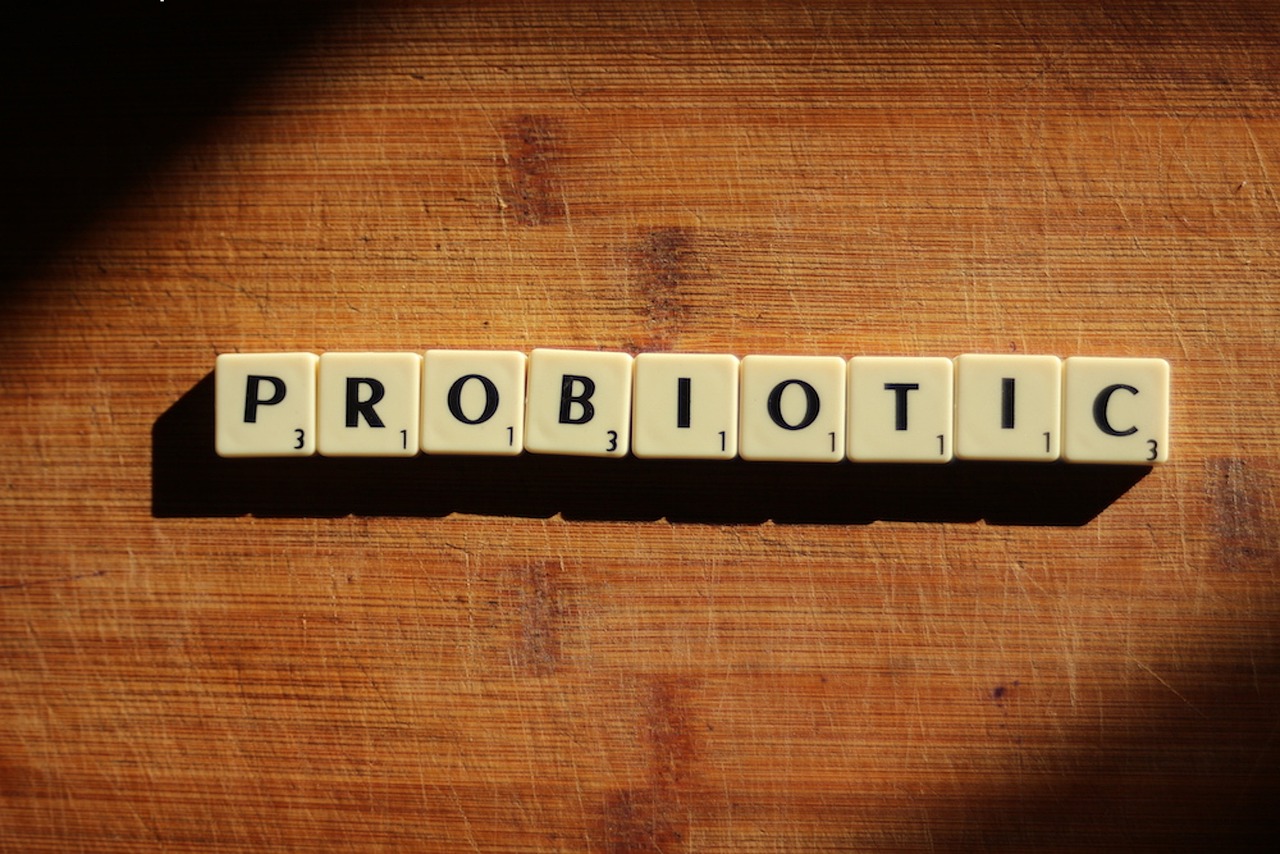
Fermented Foods
Fermented foods are not just a trend; they are a delicious way to boost your health while tantalizing your taste buds! These foods undergo a process where natural bacteria feed on the sugars and starches, creating beneficial probiotics. Think of fermentation as nature’s way of preserving food while enhancing its nutritional profile. Some popular examples of fermented foods include yogurt, kefir, kimchi, and sauerkraut. Each of these options comes packed with probiotics that can significantly contribute to your gut health.
One of the most exciting aspects of fermented foods is their variety. Not only do they offer a range of flavors and textures, but they also provide numerous health benefits. For instance, yogurt is often hailed for its ability to improve digestion and boost immunity. On the other hand, kimchi and sauerkraut are rich in vitamins and can enhance your overall gut flora, making your digestive system more resilient.
Here’s a quick comparison of some popular fermented foods and their benefits:
| Fermented Food | Health Benefits |
|---|---|
| Yogurt | Improves digestion, boosts immunity |
| Kefir | Rich in probiotics, may help with lactose intolerance |
| Kimchi | Supports gut health, high in vitamins A, B, and C |
| Sauerkraut | Enhances digestion, rich in fiber and antioxidants |
Incorporating these foods into your diet is easier than you might think! You can add yogurt to smoothies, enjoy a bowl of kefir with fruits, or spice up your meals with kimchi or sauerkraut. The beauty of fermented foods lies in their versatility. They can be enjoyed as snacks, side dishes, or even main components of your meals. So, why not experiment with these flavors and discover how they can elevate your culinary experience while promoting your health?
- What are the best fermented foods for beginners? If you're new to fermented foods, start with yogurt or kefir, as they are mild in flavor and easy to incorporate into various dishes.
- How much fermented food should I consume daily? A small serving, such as a cup of yogurt or a few tablespoons of kimchi, is a great way to start and can be adjusted based on your tolerance and preferences.
- Can I make fermented foods at home? Absolutely! Many fermented foods, like sauerkraut and yogurt, can be made at home with minimal ingredients and equipment.
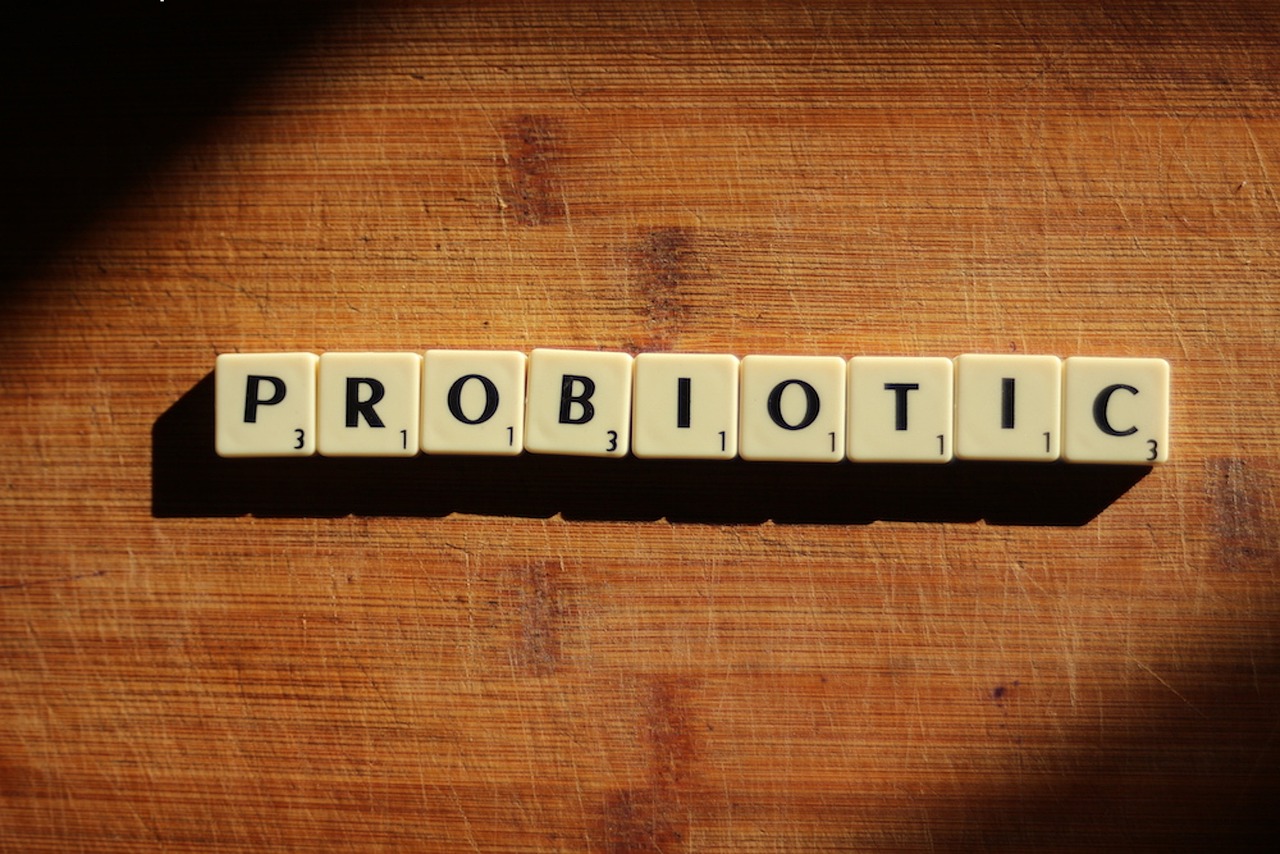
Probiotic Supplements
Probiotic supplements have gained popularity as an easy and effective way to boost your gut health. Unlike natural food sources, these supplements provide a concentrated dose of beneficial bacteria, making it simpler to achieve the desired health benefits. But how do you choose the right one? With so many options available, it can feel overwhelming. Let’s break it down!
When selecting a probiotic supplement, it’s essential to consider a few key factors:
- Strain Variety: Different strains of probiotics serve various functions. For instance, Lactobacillus is known for aiding digestion, while Bifidobacterium can help support immune function. Look for a supplement that contains a range of strains to cover multiple health bases.
- CFU Count: CFU stands for Colony Forming Units, which indicates the number of live bacteria in a dose. A higher CFU count doesn’t always mean better; it should match your health goals. Typically, a range of 1 billion to 10 billion CFUs is a good starting point for general health.
- Quality and Shelf Stability: Not all probiotics are created equal. Look for products that have been tested for potency and purity. Check if they are shelf-stable or require refrigeration, as this can affect their efficacy.
It’s also important to note that probiotic supplements come in various forms, including capsules, powders, and liquids. Capsules are convenient and easy to take, while powders can be mixed into smoothies or other foods, offering versatility. Liquids, on the other hand, may provide a more immediate effect but can be less convenient for on-the-go lifestyles.
Before starting any new supplement, it’s wise to consult with a healthcare provider, especially if you have existing health conditions or are pregnant. They can help guide you in choosing the right product based on your individual needs.
Incorporating probiotics into your daily routine can be a game-changer for your health. Whether through food or supplements, these little powerhouses can help maintain a balanced gut, support your immune system, and enhance your overall well-being. So why not give them a try?
1. Can I get enough probiotics from food alone?
While it's possible to obtain probiotics from food, supplements can provide a more concentrated dose, especially if you have specific health concerns.
2. Are there any side effects of taking probiotics?
Some individuals may experience mild digestive discomfort, such as bloating or gas, especially when first starting probiotics. These symptoms usually subside as your body adjusts.
3. How long does it take to see benefits from probiotics?
Many people may start to notice improvements in their digestive health within a few days to a week, but it can take longer for other benefits to manifest.
4. Can children take probiotic supplements?
Yes, but it’s essential to choose a product specifically formulated for children and consult a pediatrician beforehand.

Integrating Probiotics into Daily Life
Integrating probiotics into your daily life can be both easy and enjoyable! You might be wondering how to make these beneficial microorganisms a regular part of your diet, and the good news is that it doesn't require a complete overhaul of your eating habits. Instead, think of it as adding a splash of flavor and health to your meals. Start by incorporating probiotic-rich foods into your breakfast. For instance, a bowl of yogurt topped with fresh fruits and a drizzle of honey can be a delicious way to kick off your day. You can also blend a probiotic smoothie using kefir, bananas, and a handful of spinach for an energizing start.
But breakfast isn't the only opportunity to include probiotics! Consider your snacks and meals throughout the day. For example, you could munch on some fermented sauerkraut or kimchi with lunch, adding a zesty twist to your sandwiches or salads. These fermented foods not only taste great but also contribute to your gut health. You might also want to experiment with adding miso paste to your soups or dressings, which is another excellent source of probiotics.
When it comes to dinner, cooking with probiotics can elevate your meals. Think about making a stir-fry with tempeh, a fermented soy product that packs a probiotic punch. Or how about whipping up a batch of homemade pickles? They’re surprisingly easy to make and can be a fun kitchen project. Just remember to use the fermentation method, as not all pickles contain probiotics! If you're looking for a quick and easy recipe, you might try:
1. Slice cucumbers and place them in a jar. 2. Add water, salt, and a splash of vinegar. 3. Seal the jar and let it sit at room temperature for a few days. 4. Enjoy your homemade probiotic-rich pickles!
Establishing daily habits can ensure you’re consistently getting your probiotics. Here are a few tips to help you integrate probiotics seamlessly into your routine:
- Set reminders on your phone to include probiotic foods in your meals.
- Keep probiotic-rich snacks handy, like yogurt cups or kefir drinks.
- Experiment with new recipes that feature fermented ingredients.
Lastly, don’t forget about the convenience of probiotic supplements. If you find it challenging to get enough probiotics through food alone, consider adding a quality probiotic supplement to your routine. However, it’s best to consult with a healthcare professional to choose the right type for your needs. By making these small yet impactful changes, you can enjoy the benefits of probiotics and support your overall health effortlessly!
Q: How much probiotics should I consume daily?
A: While there's no one-size-fits-all answer, aiming for a daily intake of around 1-10 billion CFUs (colony-forming units) is a good starting point. Always check the product label for specific recommendations.
Q: Can I get enough probiotics from food alone?
A: Yes, many people can meet their probiotic needs through a balanced diet rich in fermented foods. However, if you have specific health concerns, supplements might be beneficial.
Q: Are there any side effects to taking probiotics?
A: Most people tolerate probiotics well, but some may experience mild digestive upset initially. It’s best to start with a lower dose and gradually increase it.
Q: Can children take probiotics?
A: Yes, probiotics can be beneficial for children, but it’s advisable to consult a pediatrician before starting any supplements.

Recipes with Probiotics
Incorporating probiotics into your meals doesn't have to be a daunting task. In fact, it can be a delightful culinary adventure! Probiotic-rich ingredients can transform your everyday dishes into gut-friendly delights. Here are some simple yet delicious recipes that not only tantalize your taste buds but also boost your health.
First up, let's talk about yogurt parfaits. These are not only quick to make but are also visually appealing and customizable. Start with a base of plain, unsweetened yogurt, which is a fantastic source of probiotics. Layer it with your favorite fruits like berries or bananas, sprinkle some granola for crunch, and drizzle with honey for sweetness. This not only makes for a perfect breakfast but also a satisfying snack throughout the day. Plus, the vibrant colors of the fruits make it a feast for the eyes!
Another exciting way to enjoy probiotics is through fermented smoothies. Blend together a cup of kefir (a fermented milk drink loaded with probiotics) with a banana, a handful of spinach, and a tablespoon of nut butter. This smoothie is creamy, nutritious, and packed with gut-friendly goodness! You can even add a scoop of protein powder if you’re looking for an extra boost post-workout.
If you're feeling adventurous, why not try making your own fermented vegetables? This is a fun project that not only adds probiotics to your diet but also allows you to experiment with flavors. Simply chop up your favorite vegetables—think cucumbers, carrots, or even beets—then submerge them in a brine of water and salt. Let them ferment for a week or two, and voila! You have your own homemade pickles or kimchi, which are not only delicious but also packed with probiotics.
For those who love baking, consider adding probiotics to your homemade bread. Using sourdough starter, which is a natural source of probiotics, can give your bread a unique flavor and texture. The fermentation process not only enhances the taste but also makes the bread easier to digest. Imagine biting into a warm slice of freshly baked sourdough, knowing it’s doing wonders for your gut health!
Lastly, don’t overlook the power of probiotic-rich dressings. You can whip up a simple salad dressing using yogurt as a base. Mix plain yogurt with olive oil, lemon juice, garlic, and herbs of your choice. This creamy dressing can elevate any salad while providing a good dose of probiotics. It’s a fantastic way to make your greens more appealing and nutritious!
As you can see, adding probiotics to your meals can be both easy and enjoyable. Whether you’re starting your day with a yogurt parfait, sipping on a smoothie, or enjoying a salad drizzled with a tangy dressing, every bite can contribute to your gut health. So, roll up your sleeves, get creative in the kitchen, and let these recipes inspire you to embrace the wonderful world of probiotics!
Q: What are probiotics?
A: Probiotics are live microorganisms that provide health benefits when consumed, particularly for digestive health.
Q: How can I incorporate more probiotics into my diet?
A: You can include foods like yogurt, kefir, sauerkraut, and kimchi, or opt for probiotic supplements.
Q: Are there any side effects of taking probiotics?
A: While generally safe, some individuals may experience mild digestive discomfort. It's advisable to consult a healthcare provider if you have concerns.
Q: How long does it take for probiotics to work?
A: The effects can vary depending on the individual and the type of probiotic, but many people notice improvements within a few days to weeks.
Q: Can I get probiotics from supplements alone?
A: Yes, but it's best to combine supplements with probiotic-rich foods for optimal health benefits.

Daily Habits for Probiotic Intake
Incorporating probiotics into your daily routine doesn't have to be a chore; in fact, it can be quite enjoyable! The key is to create simple habits that seamlessly blend into your lifestyle. Imagine starting your day with a delicious probiotic-rich breakfast that not only satisfies your taste buds but also nourishes your gut. For instance, consider adding a serving of yogurt topped with fresh fruits and a sprinkle of granola. This not only provides a creamy texture but also a delightful crunch, making it a perfect morning treat.
Another fantastic way to integrate probiotics is through your snacks. Instead of reaching for that bag of chips, why not opt for some fermented snacks? Think of crunchy kimchi or tangy sauerkraut as a sidekick to your lunch. They can add a burst of flavor while boosting your gut health. You might be surprised at how a little creativity can transform your snack game!
When it comes to meals, cooking with probiotic-rich ingredients can elevate your dishes. For example, try making a stir-fry with miso paste or adding kefir to your salad dressings. These ingredients not only enhance the flavor but also pack a powerful probiotic punch. And don't forget about beverages! Swapping out your regular soda for a refreshing kombucha can be a fun and fizzy way to hydrate while helping your gut.
To make these habits stick, consider setting reminders or keeping a journal to track your probiotic intake. You could even make it a family affair—encourage your loved ones to join in on the fun of discovering new probiotic foods together. Sharing recipes or trying out new dishes can foster a sense of community and make the experience even more enjoyable.
Incorporating probiotics into your daily life is all about balance and creativity. By making small adjustments to your meals and snacks, you can easily enhance your overall wellness. Remember, the journey to a healthier gut can be both delicious and fulfilling!
Q: How much probiotics should I consume daily?
A: While there is no one-size-fits-all answer, a general guideline is to aim for at least 1 billion CFUs (colony-forming units) per day. However, it's best to consult with a healthcare provider for personalized recommendations.
Q: Can I get enough probiotics from food alone?
A: Yes, many people can meet their probiotic needs through a balanced diet rich in fermented foods. However, supplements can be beneficial for those who may not consume enough probiotics through food.
Q: Are there any side effects of taking probiotics?
A: While most people tolerate probiotics well, some may experience mild digestive upset initially. If you have concerns, it's advisable to consult with a healthcare professional.
Q: How long does it take for probiotics to work?
A: The effects of probiotics can vary from person to person. Some may notice improvements in digestion within a few days, while others might take weeks to feel the benefits.
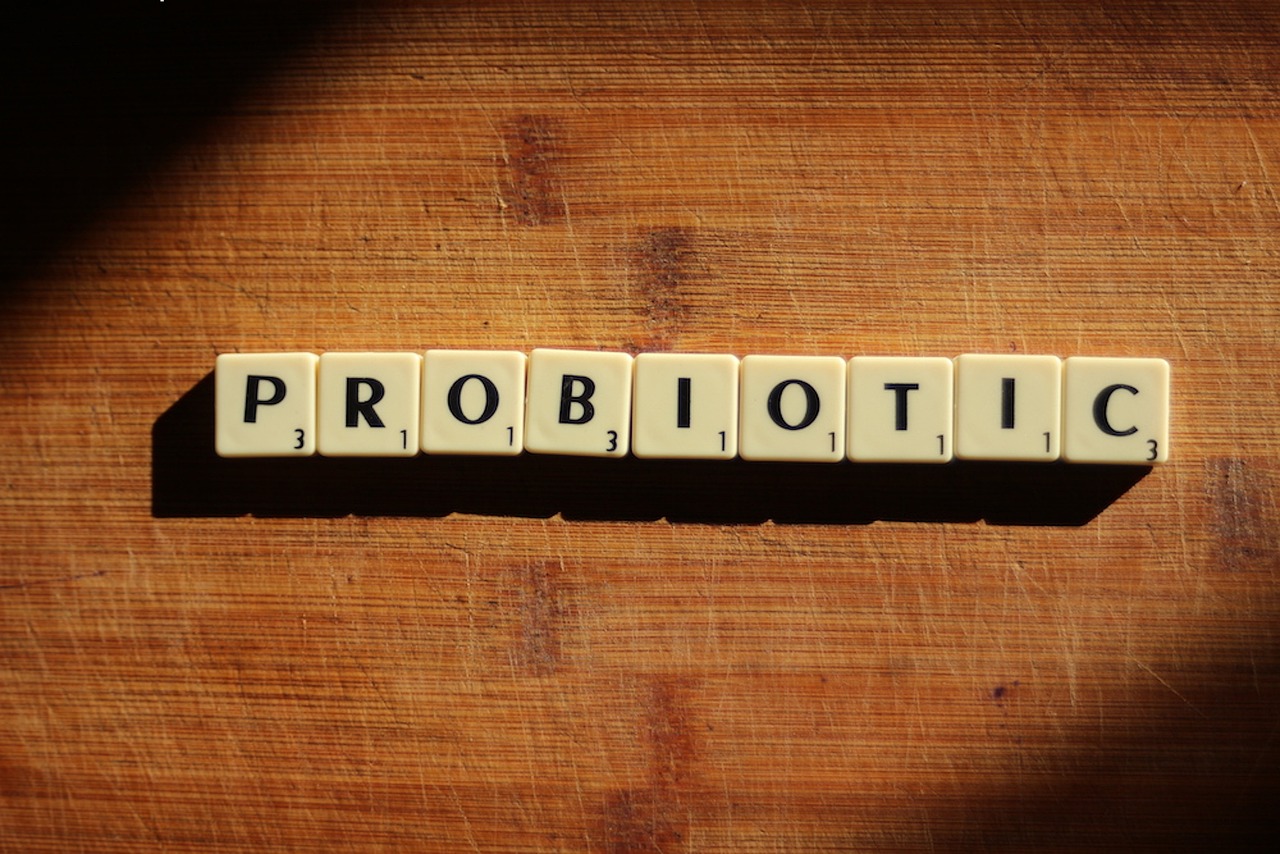
Potential Risks and Considerations
While probiotics are generally considered safe for most people, it's important to recognize that they may not be suitable for everyone. The world of probiotics is fascinating and beneficial, but like any health supplement, there are potential risks and considerations that should be taken into account before diving in. For instance, individuals with compromised immune systems, such as those undergoing chemotherapy or living with HIV/AIDS, should consult their healthcare provider before starting a probiotic regimen. This is because introducing live microorganisms into a weakened immune system can sometimes lead to infections.
Furthermore, if you have underlying health conditions, such as severe allergies or gastrointestinal disorders, it's wise to approach probiotics with caution. Some people may experience adverse reactions, especially if they are new to probiotics. Common side effects can include mild digestive upset, bloating, or gas. While these symptoms are usually temporary and resolve as your body adjusts, they can be uncomfortable. Keeping a close eye on how your body responds when you first start taking probiotics is crucial.
It's also essential to consider the quality of the probiotic products you choose. Not all probiotics are created equal, and some may not contain the strains or potency they claim. Always look for reputable brands that provide third-party testing results. Here's a quick checklist to help you choose the right probiotic:
- Research the Strains: Different strains have different benefits. Make sure the strain you choose aligns with your health goals.
- Check Potency: Look for products that contain at least 1 billion CFUs (colony-forming units) per serving.
- Read Reviews: Customer feedback can provide insight into the effectiveness and reliability of a product.
- Consult a Professional: If unsure, always consult a healthcare provider for tailored advice.
In summary, while probiotics can offer a plethora of health benefits, it's vital to approach them thoughtfully. By being aware of potential risks and consulting with healthcare professionals when necessary, you can safely incorporate probiotics into your wellness routine. Understanding your body and how it reacts to different strains will empower you to make informed choices that enhance your health journey.
1. Can I take probiotics if I have a medical condition?
It's best to consult with a healthcare provider if you have a medical condition, especially if you have a compromised immune system.
2. Are there any side effects associated with probiotics?
Some individuals may experience mild digestive issues like bloating or gas, but these are usually temporary.
3. How do I know which probiotic to choose?
Look for reputable brands, check for specific strains that match your health goals, and consider the potency of the product.
4. Can I get enough probiotics from food alone?
While many people can obtain adequate probiotics from fermented foods, supplements can provide higher concentrations and specific strains beneficial for certain health issues.
5. How long does it take to notice the benefits of probiotics?
The time frame can vary, but many people start to notice improvements within a few weeks of consistent use.

Who Should Avoid Probiotics?
While probiotics are generally considered safe for most people, there are certain groups who may need to exercise caution or even avoid them altogether. Understanding these exceptions is crucial for ensuring your health and safety. For instance, individuals with compromised immune systems, such as those undergoing chemotherapy or living with HIV/AIDS, should consult a healthcare provider before introducing probiotics into their diet. The reason behind this caution is that probiotics, being live microorganisms, could potentially lead to infections in vulnerable individuals.
Additionally, people with certain medical conditions, like pancreatitis or those who have had recent surgery, should also think twice before consuming probiotics. In these cases, the introduction of live bacteria might complicate their recovery or exacerbate existing issues. It's always best to err on the side of caution and discuss any dietary changes with a healthcare professional.
Here are some specific conditions and situations to consider:
- Immunocompromised individuals: Those with weakened immune systems may be at risk of infections from probiotics.
- Recent surgeries: Post-operative patients should consult their doctors before taking probiotics.
- Chronic illnesses: Conditions like pancreatitis may require a more cautious approach to probiotics.
Furthermore, some people may experience digestive discomfort or allergic reactions when taking probiotics. Symptoms can include gas, bloating, or an upset stomach. If you notice any adverse effects after starting probiotics, it's wise to discontinue use and consult your healthcare provider. Remember, every body is different, and what works for one person may not work for another. Always prioritize your health and well-being by being informed and cautious.
1. Can anyone take probiotics?
Most people can safely take probiotics; however, individuals with compromised immune systems or certain medical conditions should consult a healthcare professional first.
2. What are the common side effects of probiotics?
Some may experience mild digestive discomfort, including gas, bloating, or an upset stomach, especially when first starting probiotics.
3. How do I know if I need probiotics?
If you're experiencing digestive issues or want to support your gut health, probiotics might be beneficial. However, it's best to discuss with a healthcare provider to determine your specific needs.
4. Are there any foods I should avoid while taking probiotics?
Generally, there are no specific foods you need to avoid, but a balanced diet can help maximize the benefits of probiotics.

Possible Side Effects
While probiotics are generally considered safe for most people, it’s important to understand that they can sometimes cause side effects. These side effects are typically mild and may include symptoms such as gas, bloating, and diarrhea. For many, these symptoms may occur as the body adjusts to the introduction of new bacteria into the gut. Think of it like moving into a new neighborhood; it may take some time to get used to the new environment and its inhabitants.
In rare cases, individuals with underlying health conditions may experience more severe reactions. For example, people with compromised immune systems or those with certain gastrointestinal disorders should be cautious. It’s crucial to consult a healthcare provider before starting any probiotic regimen, especially if you fall into these categories. The following table summarizes some common side effects and who might be at risk:
| Side Effect | Description | At-Risk Groups |
|---|---|---|
| Gas | Increased gas production in the gut. | General population |
| Bloating | Feeling of fullness or swelling in the abdomen. | General population |
| Diarrhea | Loose or watery stools, often temporary. | General population, those with digestive issues |
| Infections | Rare cases of infections in immunocompromised individuals. | People with weakened immune systems |
It's important to note that these side effects are usually temporary and tend to resolve as your body acclimates to the probiotics. However, if you experience persistent discomfort or severe reactions, it’s advisable to stop taking the probiotics and consult with a healthcare professional. Remember, your body is unique, and what works for one person may not work for another.
In summary, while probiotics can offer numerous health benefits, being aware of potential side effects is essential. By understanding how your body reacts and making informed choices, you can enjoy the advantages of probiotics while minimizing any discomfort. Always listen to your body and seek professional guidance when in doubt.
- What are probiotics? Probiotics are live microorganisms that provide health benefits when consumed, particularly for gut health.
- Can anyone take probiotics? Most people can take probiotics safely, but those with compromised immune systems should consult a healthcare provider first.
- What are the common side effects of probiotics? Common side effects include gas, bloating, and diarrhea, especially when first starting.
- How can I incorporate probiotics into my diet? You can consume probiotics through fermented foods like yogurt, kefir, sauerkraut, and through supplements.
- How long does it take to feel the benefits of probiotics? While some may notice changes within a few days, it can take a few weeks to experience the full benefits.

Conclusion
In conclusion, probiotics are not just a trendy health buzzword; they are a crucial component of our overall wellness. By understanding their role in maintaining gut health and supporting our immune system, we can unlock the door to a healthier lifestyle. Imagine your gut as a bustling city, with probiotics acting as the friendly traffic officers, ensuring everything flows smoothly. When you incorporate these beneficial microorganisms into your daily routine, you're not just improving digestion; you're also fortifying your body against illnesses and enhancing your overall quality of life.
As we've seen, the benefits of probiotics are vast and varied. From alleviating digestive discomfort to bolstering your immune defenses, the positive impacts are compelling. It's essential to remember that not all probiotics are created equal. Different strains serve different purposes, so finding the right ones for your specific needs can make a world of difference. Whether it's through delicious fermented foods or convenient supplements, integrating probiotics into your diet can be both enjoyable and impactful.
Before you dive headfirst into the world of probiotics, it's wise to consider your individual health circumstances. While most people can safely enjoy the benefits of probiotics, some may need to tread carefully. Consulting with a healthcare provider can help you navigate any potential risks and ensure that you're making the best choices for your body.
So why wait? Start exploring the diverse world of probiotics today. Experiment with recipes, try out different fermented foods, and establish daily habits that make probiotic intake second nature. Your gut will thank you, and your overall health will likely flourish as a result. Remember, a healthy gut is the foundation of a healthy life!
- What are probiotics? Probiotics are live microorganisms that provide health benefits when consumed, particularly for gut health.
- How do probiotics work? They help maintain a balanced gut flora, support digestion, and enhance immune function.
- Can I get probiotics from food? Yes! Foods like yogurt, kefir, and fermented vegetables are excellent sources of probiotics.
- Are there any risks associated with probiotics? While generally safe, some individuals, especially those with compromised immune systems, should consult a healthcare provider before starting probiotics.
- How can I incorporate probiotics into my diet? You can enjoy probiotic-rich foods, use supplements, or try recipes that include fermented ingredients.
Frequently Asked Questions
- What are probiotics?
Probiotics are live microorganisms that provide health benefits when consumed in adequate amounts. They are often referred to as "good" or "friendly" bacteria and play a crucial role in maintaining gut health and overall wellness.
- How do probiotics benefit digestive health?
Probiotics help balance the gut flora, which can alleviate digestive issues such as bloating, diarrhea, and constipation. By promoting a healthy digestive environment, they support better nutrient absorption and overall gut function.
- Can probiotics help with Irritable Bowel Syndrome (IBS)?
Yes! Certain strains of probiotics have been shown to help manage symptoms of IBS. They can reduce bloating, gas, and abdominal pain, making them a valuable addition to the diet of those affected by this condition.
- What are some natural sources of probiotics?
Probiotics can be found in various foods, especially fermented ones. Some popular sources include yogurt, kefir, sauerkraut, kimchi, and miso. Incorporating these foods into your diet can help boost your probiotic intake naturally.
- Are probiotic supplements effective?
Yes, probiotic supplements can be effective, especially for individuals who may not get enough probiotics from their diet. However, it's essential to choose the right strains and dosages based on individual health needs and goals.
- How can I integrate probiotics into my daily routine?
Integrating probiotics into your daily routine can be simple! You can start your day with probiotic-rich yogurt, add fermented foods to your meals, or take a daily supplement. Consistency is key, so find a routine that works for you!
- Are there any risks associated with taking probiotics?
While probiotics are generally safe for most people, some individuals, especially those with compromised immune systems, should consult a healthcare provider before starting them. It's also important to be aware of possible side effects like gas or digestive discomfort.
- Who should avoid probiotics?
Individuals with weakened immune systems, such as those undergoing chemotherapy or with certain chronic illnesses, should avoid probiotics unless advised otherwise by a healthcare professional. It's crucial to assess personal health conditions before starting any new supplement.
- What are the common side effects of probiotics?
Some people may experience mild side effects from probiotics, including bloating, gas, or digestive upset. These symptoms usually resolve on their own as the body adjusts. If side effects persist, it's advisable to consult with a healthcare provider.



















